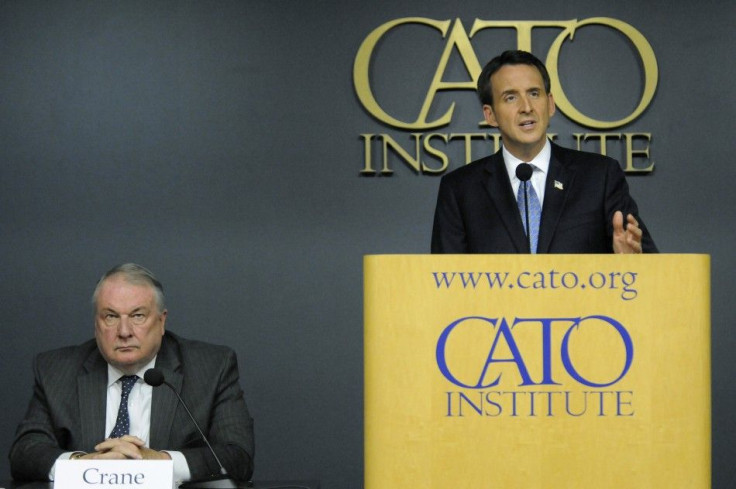Koch Brothers Sue for More Control of Cato Institute

The Koch brothers, billionaire financiers to the conservative policy world, are in a legal battle to gain greater control of the influential libertarian think tank, the Cato Institute.
Charles and David Koch have sued the widow of former Cato Institute chairman, William Niskanen, for a shot at buying his shares in the organization, Politico reported Thursday.
After Niskanen's death in October, his widow Kathryn Washburn took over his estate, which included 25 percent interest in the Cato Institute. The Kochs say the shareholder agreement Niskanen signed would force Washburn to sell the shares back to Cato, according to the suit filed in Kansas court.
Almost four months after Niskanen's death, defendant Washburn has not offered to sell the Niskanen shares to the [Cato Institute] in accordance with the requirement of the shareholders agreement, the suit says.
According to the complaint, if Cato's board of directors declines to buy back the shares, individual shareholders like the Koch Brothers can purchase them.
The Cato Institute, a defendant in the suit, rejected the Koch Brothers' interpretation of the agreement, the complaint alleges.
The Koch brothers control half of the interest in Cato, with the remainder evenly split between Niskanen and Ed Crane, the think tank's founder and president.
Koch executives told Politico that Crane believes the shares in Cato should remain with Niskanen's widow.
Crane in a statement called the lawsuit a power grab from Charles Koch, a Cato co-founder.
Mr. Koch's actions in Kansas court yesterday represent an effort by him to transform Cato from an independent, nonpartisan research organization into a political entity that might better support his partisan agenda, Crane said.
Among Washington's more well-known think tanks, the Cato Institute was originally founded as The Charles Koch Foundation in 1974, changing its name in 1976.
In 1985, Charles Koch of Wichita, Kan., was one of four shareholders, along with Niskanen, Crane and George Pearson; Pearson, however, later gave up his shares in 2008. David Koch, a philanthropist living in New York City, joined as a shareholder in 1991.
According to Niskanen's will, attached to the complaint, he gave a third of his estate to Washburn, a third to the Cato Institute and the remainder to the Institute for Justice, a libertarian public interest law firm.
This story has been updated with comment from Ed Crane, co-founder of the Cato Institute.
© Copyright IBTimes 2025. All rights reserved.





















